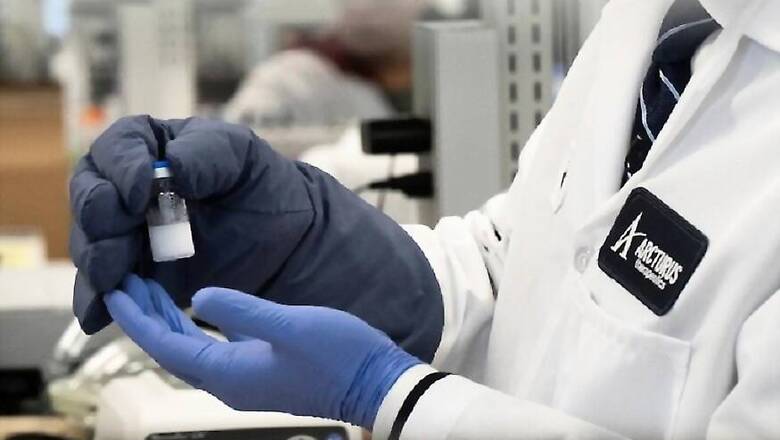
views
New Delhi: An experimental drug of American pharma major Gilead Sciences Inc, remdesivir, is being seen as a potential treatment for coronavirus, as trials enter a crucial phase. It is important to remember that this is not a vaccine.
Here is all we need to know about the drug and the developments surrounding it:
- Multiple clinical trials are investigating the drug’s effects in Covid-19 patients in China and elsewhere. Initial results may be reported as early as next week.
- A WHO panel said in January that remdesivir was considered to be the most promising therapeutic candidate based on its broad antiviral spectrum, and existing data based on human and animal studies. The medication was developed initially for Ebola and studied in patients in Eastern Congo.
- However, pressure is mounting on Gilead Sciences Inc not to go ahead with the exclusive status for the drug. More than 150 organisations and individuals, including Doctors Without Borders, on March 30 said it was "unacceptable for Gilead's remdesivir to be put under the company's exclusive control."
- An exclusive control, the medical fraternity fears, will create a monopoly and, thus, will hamper the chances of wide reach of the medicine both in terms of affordability and availability.
- If it is approved, we will work to ensure affordability and access so that remdesivir is available to patients with the greatest need, the California-based company said in a statement issued on Saturday.
- On March 23, remdesivir received the “orphan drug" designation from the Food and Drug Administration in the US.
- The status is granted to a drug that shows promise in the treatment, prevention or diagnosis of a rare disease. These drugs are called orphan because they are commercially underdeveloped and production needs government support.
- Gilead has already initiated phase-III clinical trials that involve randomised testing in hundreds of patients for a drug’s effectiveness. According to estimates, 70-90 percent of the drugs that go into phase-III successfully complete this make-or-break stage.
- Once commercially available, the medicine’s price, particularly for countries such as India, will remain a key question. In their letter, the NGOs claimed that Gilead Sciences held primary patents of remdesivir in more than 70 countries.
- Researchers expect the FDA to fast-track the approval, with the US accounting for most confirmed cases globally at more than 1,60,700.



















Comments
0 comment